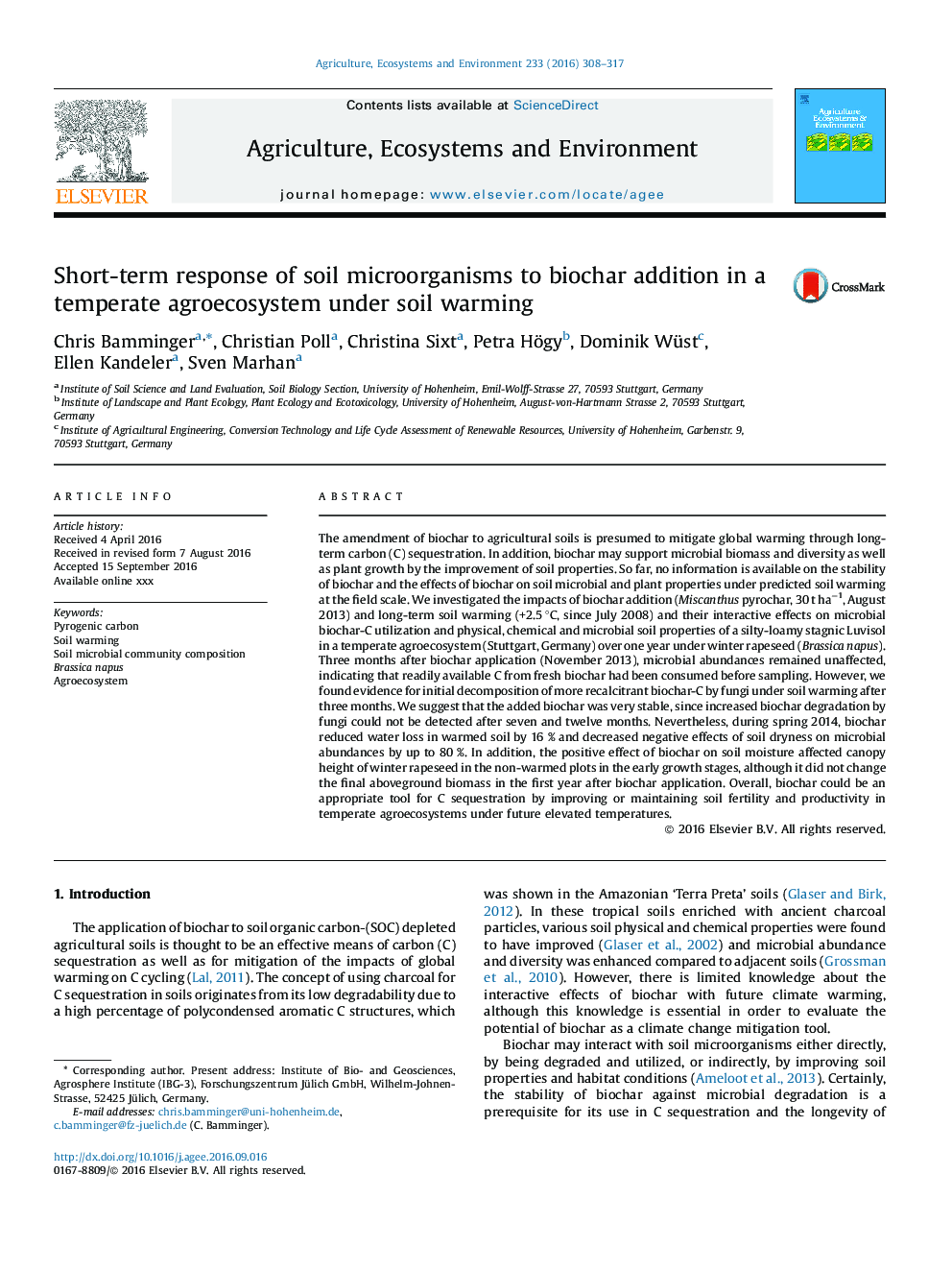| کد مقاله | کد نشریه | سال انتشار | مقاله انگلیسی | نسخه تمام متن |
|---|---|---|---|---|
| 8487284 | 1552019 | 2016 | 10 صفحه PDF | دانلود رایگان |
عنوان انگلیسی مقاله ISI
Short-term response of soil microorganisms to biochar addition in a temperate agroecosystem under soil warming
ترجمه فارسی عنوان
واکنش کوتاه مدت میکروارگانیسم های خاک به افزودن زیست تخریبی در یک سیستم کشاورزی معتدل تحت گرم شدن خاک
دانلود مقاله + سفارش ترجمه
دانلود مقاله ISI انگلیسی
رایگان برای ایرانیان
کلمات کلیدی
موضوعات مرتبط
علوم زیستی و بیوفناوری
علوم کشاورزی و بیولوژیک
علوم زراعت و اصلاح نباتات
چکیده انگلیسی
The amendment of biochar to agricultural soils is presumed to mitigate global warming through long-term carbon (C) sequestration. In addition, biochar may support microbial biomass and diversity as well as plant growth by the improvement of soil properties. So far, no information is available on the stability of biochar and the effects of biochar on soil microbial and plant properties under predicted soil warming at the field scale. We investigated the impacts of biochar addition (Miscanthus pyrochar, 30 t haâ1, August 2013) and long-term soil warming (+2.5 °C, since July 2008) and their interactive effects on microbial biochar-C utilization and physical, chemical and microbial soil properties of a silty-loamy stagnic Luvisol in a temperate agroecosystem (Stuttgart, Germany) over one year under winter rapeseed (Brassica napus). Three months after biochar application (November 2013), microbial abundances remained unaffected, indicating that readily available C from fresh biochar had been consumed before sampling. However, we found evidence for initial decomposition of more recalcitrant biochar-C by fungi under soil warming after three months. We suggest that the added biochar was very stable, since increased biochar degradation by fungi could not be detected after seven and twelve months. Nevertheless, during spring 2014, biochar reduced water loss in warmed soil by 16 % and decreased negative effects of soil dryness on microbial abundances by up to 80 %. In addition, the positive effect of biochar on soil moisture affected canopy height of winter rapeseed in the non-warmed plots in the early growth stages, although it did not change the final aboveground biomass in the first year after biochar application. Overall, biochar could be an appropriate tool for C sequestration by improving or maintaining soil fertility and productivity in temperate agroecosystems under future elevated temperatures.
ناشر
Database: Elsevier - ScienceDirect (ساینس دایرکت)
Journal: Agriculture, Ecosystems & Environment - Volume 233, 3 October 2016, Pages 308-317
Journal: Agriculture, Ecosystems & Environment - Volume 233, 3 October 2016, Pages 308-317
نویسندگان
Chris Bamminger, Christian Poll, Christina Sixt, Petra Högy, Dominik Wüst, Ellen Kandeler, Sven Marhan,
